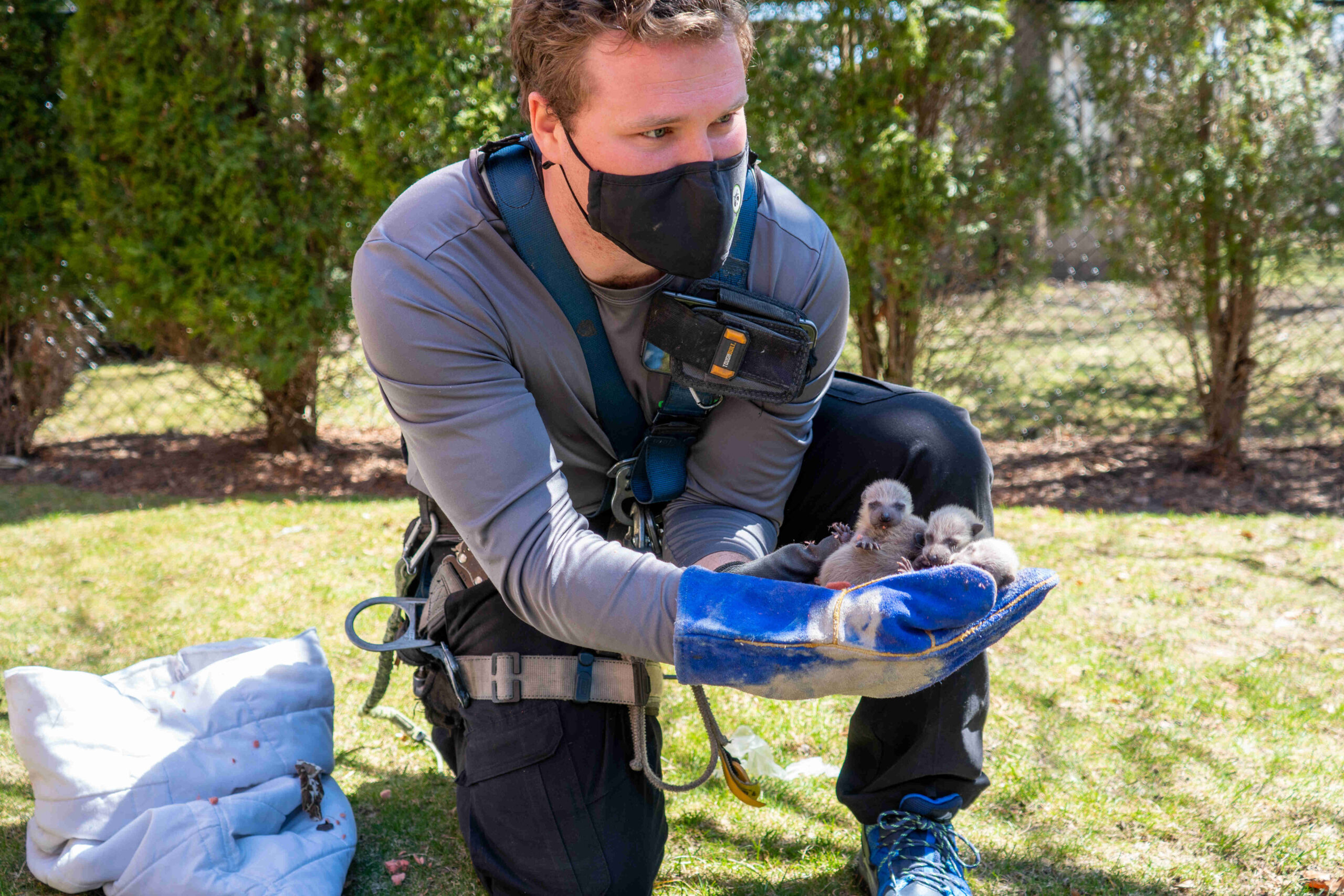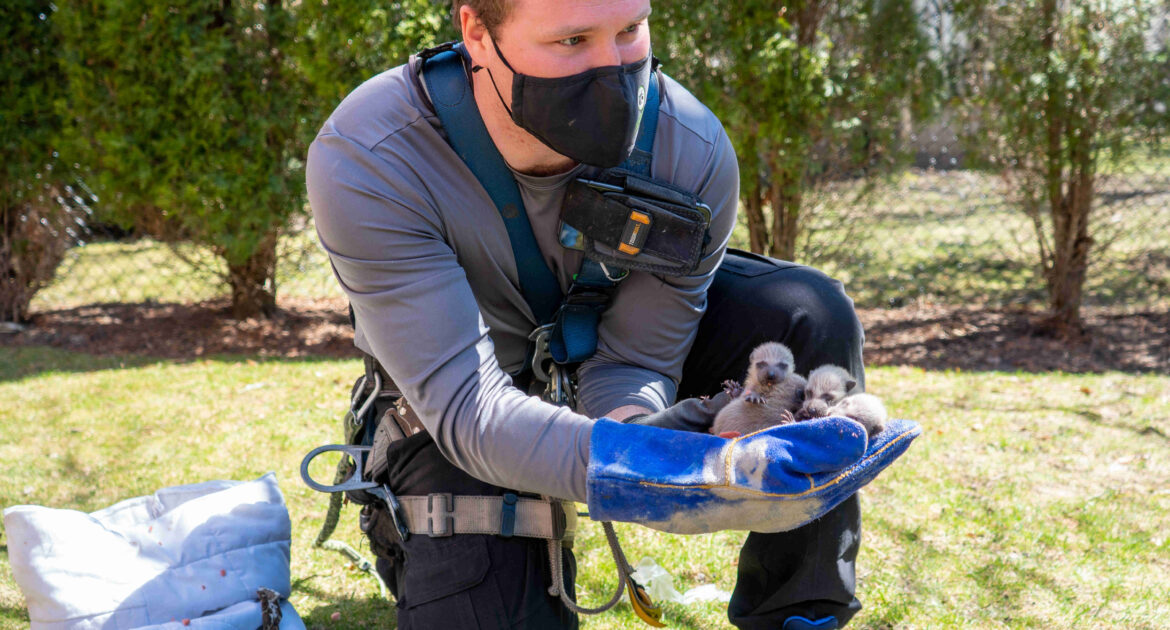Raccoons may be cute creatures, but they often carry contagious diseases and can cause significant damage to your home, so it’s best to appreciate the animals from a distance instead of having them in your home. Most raccoons prefer to be solitary, but if you have a pregnant female living in your attic, a single animal can turn into a full-blown infestation within a matter of weeks. Knowing if a raccoon is pregnant or not is important for humane raccoon removal. Here’s what you should know about pregnant raccoons.
Is It Mating Season?
Raccoon mating season varies in different climates, but it can start as early as late January and run through early July. In general, the mating season peaks between January and early May. Raccoons give birth nine weeks after successfully mating. You may start to see kits as early as mid-February. Most females only give birth one time a year, but if a litter is lost early on during mating season, a female may get pregnant again and replace the lost litter.
Raccoons are known to give birth to litters of up to eight babies at one time. However, most litters average between three and five kits apiece. The babies make small chirping noises immediately after birth that resemble the sound of birds tweeting. As they get older, the vocalizations become louder, and if you have raccoon kits living in your home, the sound is impossible to ignore. The kits don’t start venturing out of the den with their mother until they are around 12 weeks old.
How Is the Raccoon Acting?
Male raccoons are almost always solitary, but females often live in small social groups. They share the same feeding grounds and den sites until they become pregnant. Once a female raccoon is pregnant, she will become isolated and leave the group in search of a den to raise her babies in. If you see a lone raccoon, especially if it is forging around your house, you likely have come across a pregnant female looking for a den.
Why Do Raccoons Like To Give Birth and Raise Kits Inside?
Raccoon mothers are extremely protective of their young and always look for warm, secure dens to raise their kits in. In the wild, hollowed-out trees and small crevices under rocks serve as decent dens, however homes provide the ideal place for raccoons to give birth. The mother raccoon gives birth in an area of a home that is not frequently used by humans such as in the chimney or under a porch. There, the babies are protected and safe when the mother goes to forage for food. The inside of your home is also a warm space where mother raccoons can keep their babies protected from the elements, especially if they give birth before the winter chill has given way to the warm spring months.
What Should You Do If You Have a Raccoon in Your Home?
You call a professional for help with raccoon removal as soon as you realize that one of the creatures is living in your home. Taking matters into your own hands and trying to remove raccoons yourself is never a good idea because you could get hurt or accidentally harm the creature.
Schedule an Appointment for Raccoon Removal
When you need wildlife control in Oakville, call Skedaddle Humane Wildlife Control. We have a team of experts who specialize in raccoon removal and can get the creatures off of your property quickly and efficiently without causing harm. Contact us today to schedule an appointment.





